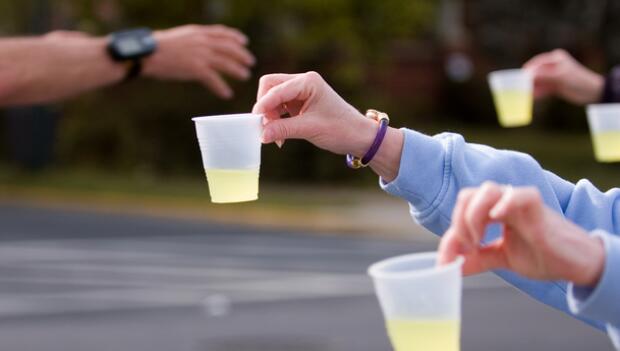
Outside of finding time to train, the item that causes long-course triathletes the most worry and indigestion is the nutrition plan.
There are plenty of horror stories about athletes that were unable to complete an Ironman event because they bonked from not consuming enough calories, didn't drink enough, drank too much, or they got sick and vomited all stomach contents.
As if gastro intestinal (GI) issues aren't enough, add feeling light-headed or dizzy and getting cramps that can potentially be caused by nutrition and hydration issues.
What nutrition plan can prevent all of these issues?
Simplified
Boiled down, you want to fuel and hydrate at a volume and pace that allows you to feel good and sustain your projected race pace throughout the entire event. That doesn't seem like too much to ask, does it?
Train to Race
Before we head directly into the nutrition issues, first I'm going to assume that you maintain the appropriate training volume and have included race-paced segments in some of your workouts.
During this training, you've undoubtedly had some long runs, rides and perhaps bricks (bike-run workouts). It is during these long workouts that you need to practice your race day nutrition.
Get the bugs worked out of your Ironman nutrition plan during training so that when race day arrives you can confidently begin the day with a plan that you know has worked for you. Based on this training experience, you have probably found that nutrition plans are not exact. You need some flexibility in nutrition.
That means you will drink or eat more or less than your plan "centerline" depending on:
- How you feel that day
- Weather conditions
- Pace
In other words, you need a suitable range of race-day nutrition and hydration numbers that work well for you.
Where to Start
Different Ironman nutrition plans work well for different people. One person swears that they can only drink fluids during an Ironman race while another can comfortably eat a slice of pizza before the marathon run. Another person does fine on one small water bottle of fluid per hour, while another person needs two large bottles to do well. Yet another person swears by electrolyte tablets, several per hour, and the person next to them declares with confidence that these tablets are unnecessary.
The bottom line is what works for your best friend may not work for you; you have to figure out what works for you.


